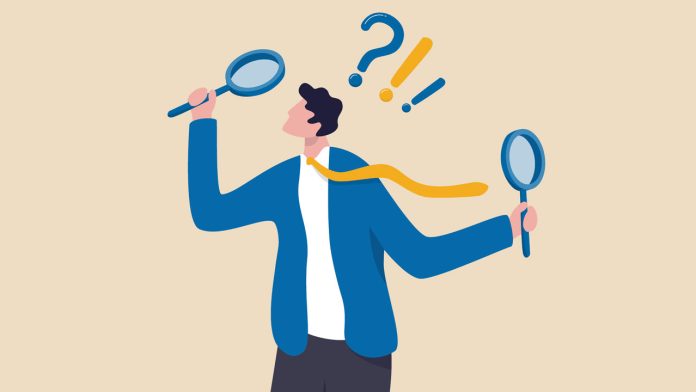Loss prevention investigations are just one of the many specialized elements that are part of an accomplished loss prevention program. Each of these functions is vital to the success of the program, and the understanding and application of each component is an integral part of professional development. It is important to have a global outlook and well-rounded approach to the retail environment. We must recognize our place in the bigger picture, and find a balance that leads to higher achievement.
But while a global view and a balanced perspective of the retail world is absolutely essential to career development, the ability to investigate remains a skill that sets loss prevention apart from most other retail professionals. Strong investigative abilities typically helped us to stand out from our loss prevention counterparts early in our careers. The passion to solve a problem, methodically and objectively gathering the pieces and separating fact from conjecture; the analytical process of finding substance in the core of uncertainty; and the intuition to find answers when others can only see questions is initially what drew many of us into the loss prevention field. We enjoy the search as much as the solution, and find fulfillment as we unlock the unexplained.
A Search for the Truth
As is true with any investigation, loss prevention investigations are a search for truth. It is a systematic, detailed examination or inquiry intended to uncover facts and find answers. Ideally, we want those answers to uncover the cause, define the particulars, and produce a result that leads to solutions. Beyond discovery, this process may include collecting, recording, analyzing, evaluating, and reporting our findings. But regardless of the type of investigation, the purpose of the investigation is to ascertain the facts. Loss prevention investigations should be organized and methodical, and should always be conducted without bias or prejudice. Once the facts are determined through the process of investigation, decisions on how to react to those findings are easier to establish and resolve.
Most loss prevention investigations focus on uncovering the causes of company losses. The investigative process is fundamental to determining the causes of loss no matter where the source of that loss may originate, or where the results of our investigation might take us. Often, the source of the loss is dishonesty, but there are other potential causes of loss that can have tremendous impact on the success of the business and are no less important to investigate.
By the same respect, retail presents diverse investigative opportunities, and investigations may become necessary for other reasons as well. This can lead down untraveled roads and in various directions based on the needs of the organization. Our professional perspective must remain unbiased, our mindset global, and our intuition sharp as we maintain focus and attention on the needs of the organization and pursue investigative objectives.
Influencing Improvement
In retail loss prevention, investigations shouldn’t simply produce results; they should promote action. If we are truly looking to serve the best interests of the business, solutions should reach beyond correction and influence improvement. Investigations are often considered reactionary, as they typically occur after a certain event (usually a negative episode) has taken place. However, the results of our investigations can also be used as a proactive means to deter similar issues. Once we have determined the root cause of a particular issue, the results of the investigation can be useful in determining additional controls and corrective measures to deter the same type of issues from happening again in the future.
An investigation shouldn’t be approached as merely a practice that is followed, but a process that is managed. Every investigation is multi-faceted. A variety of steps are required in the investigative process from initiation of the case, through the collection and analysis of evidence and information, the findings that are gathered along the way, the conclusions that we reach, the actions that result, and finally the closing of the investigation. While we must be methodical and meticulous in our approach, we must also be creative and flexible—willing and able to allow the investigation to unfold in accord with the multitude of variables that will come into play. Each will have its own unique traits. Each will present us with distinct challenges. Our minds must remain open, our decisions sound, our judgments grounded, and our conclusions drawn based on the facts. Resulting actions will be pursued with the best interests of the company in mind within the parameters of legal and professional guidelines and protocol.
The talents of even the most skilled investigators must be harnessed, controlled, and developed. We may have a suspicious nature, be a bulldog for details, and hold a keen sense for problem solving, but that alone isn’t enough. It is through the application of skills that we set ourselves apart. We have to possess the foresight to understand our environment, learning the business of retail and the opportunities that exist so that we can apply behavior with circumstance. We must learn the tools of the trade so that we can maximize efficiency and productivity. We have to maintain an awareness of our role so that we can operate as peers and as partners. We must develop the hindsight to learn from our experiences so that we can become better each and every time a new challenge presents itself.


